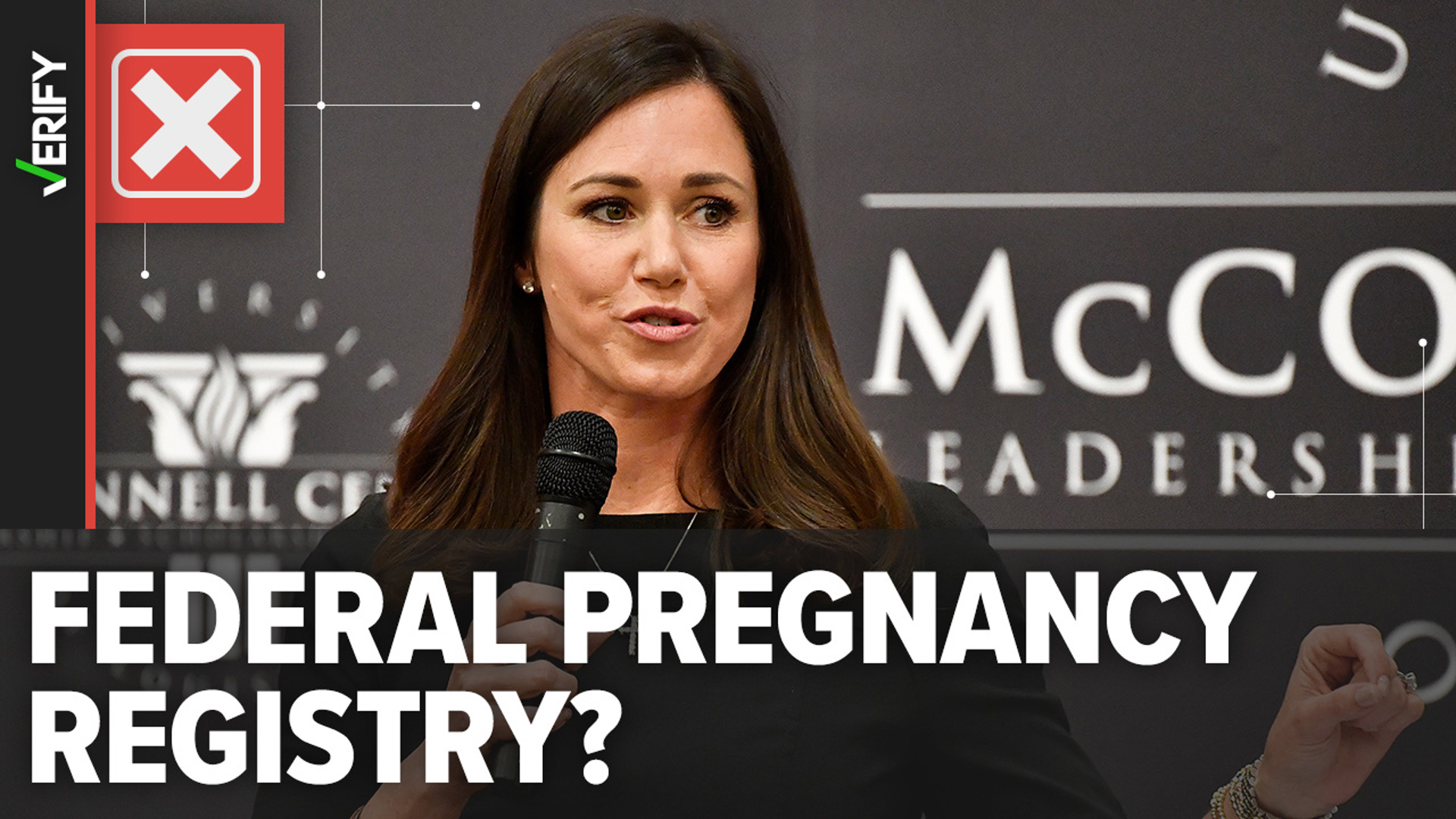A bill introduced by Sen. Katie Britt (R-Ala.) that is aimed at offering support for people who are pregnant and postpartum is receiving criticism online.
Britt gained national attention after she delivered the Republican response to President Joe Biden’s State of the Union address in March.
Viral posts shared on social media claim Britt’s More Opportunities for Moms to Succeed (MOMS) Act would “create a federal database of pregnant women,” with others adding that these women would have to register with the federal government.
One of the posts says the bill would “require pregnant women to be on a national registry.”
THE QUESTION
Would Sen. Katie Britt’s MOMS Act require pregnant women to register with the federal government?
THE SOURCES
- The MOMS Act
- Spokesperson for Sen. Katie Britt
- U.S. Department of Health and Human Services privacy policy
THE ANSWER
No, Sen. Katie Britt’s MOMS Act would not require pregnant women to register with the federal government.
WHAT WE FOUND
Sen. Katie Britt’s MOMS Act would not require people to register their pregnancies with the federal government, according to the bill text and Britt’s office.
Sean Ross, Britt’s communications director, called the online claims “intentionally, flagrantly false.”
The false claims stem from a provision in the bill that would create a new federal website called pregnancy.gov with resources for pregnant and postpartum people, as well as parents of young children. It would include a questionnaire aimed at directing users to resources within their zip code, the bill text published on Britt’s website says.
The website would also ask users to voluntarily provide their contact information if they would like follow-up contact from the Department of Health and Human Services (HHS).
But people would not be required to disclose “any personally identifiable information” to use the website or “access its listing of resources,” according to a spokesperson for Britt. The website also would not solicit information about a person’s pregnancy status, the spokesperson said.
The bill text says users could consent to providing contact information, such as a phone number or email, so HHS could follow up with additional resources. But it does not say users are required to provide this information to use the website.
The bill also does not mention anything about the creation of a federal registry or database for pregnant people.
“There is no log-in or registration to use the website, nor is there any kind of tracking involved,” Britt’s spokesperson added.
Critics of the bill, like Sen. Patty Murray (D-WA) and other Senate Democrats, are worried about the website collecting data from pregnant people. They argue this information would allow the government to track people’s pregnancies, writing in a statement that the MOMS Act would “mandate the creation of an online federal database where women will be encouraged to register their pregnancies with the government.”
Any entity that “performs, induces, refers for or counsels in favor of abortions” would not be listed on the website, Ross said.
That’s why the Senate Democrats and other critics of the MOMS Act are also concerned that women could be held accountable for getting an abortion if they provide their information through the website.
“The website would also encourage users to provide their contact information, ‘which the Secretary may use to conduct outreach via phone or email to follow up with users’ — meaning that pregnant women would be encouraged to provide data to a potential Trump administration and potentially allow a government bureaucrat to follow up with them about the status of their pregnancy,” the Senate Democrats said in a statement.
There are a number of federal laws, regulations and policies that are aimed at protecting people’s personal and medical information.
For example, HHS has a privacy policy on its website. That website says “submitting personally identifiable information (PII) such as name, address, telephone number, email address, etc. is voluntary and is not required to access information on our website.”
HHS keeps the information “only for as long as necessary to respond to your question or request, in most cases no longer than three months,” the website says.
Ross told VERIFY that “nothing in the MOMS Act” would change this policy, “meaning HHS would not retain that data.” The bill itself also does not include any information about altering HHS privacy policies.
Britt’s MOMS Act has been referred to committee, but it’s unlikely to pass in the Democrat-controlled Senate.

